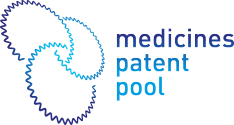Medicines Patent Pool statement, 69th World Health Assembly
30 May 2016
Agenda item 15.1 – WHO Global Health Sector Strategies for HIV and Viral Hepatitis
MPP representative: Greg Perry
The Medicines Patent Pool (MPP) welcomes the draft WHO strategies for HIV and viral hepatitis.
The strategies offer a roadmap for addressing two major public health challenges and highlight the need to ensure the supply of quality and affordable medicines. Voluntary licensing is identified as a way to enable competition among manufacturers and reduce prices. Negotiating voluntary licences is the focus of MPP, the world’s first public health oriented licensing mechanism for medicines.
The MPP was created and is fully funded by UNITAID, following a recommendation from the WHO Global Strategy and Plan of Action on Public health, Innovation and IP. It works in collaboration with Member States, patient groups, industry and civil society to facilitate access, and promote innovation for paediatric formulations and fixed dose combinations. This is achieved through non-exclusive, public-health oriented licences with patent holders that incorporate key access provisions.
In HIV, the MPP has partnered with 7 originator and 12 generic companies. This has enabled more affordable access to WHO-recommended treatments in over 100 countries. The new first line medicine dolutegravir, which was recently added to the WHO guidelines, was licensed through the MPP to 9 manufacturers who will be able to supply generic versions in approximately 130 countries where 94% of PLHIV in developing countries live. The licence was recently expanded to include all lower middle-income countries, including for example, Ukraine and Morocco.
Following the recent mandate expansion into HCV, the MPP already negotiated its first license for daclatasvir – a new treatment in WHO’s essential medicines list. The licence allows quality-assured manufacturers to make generic versions for supply in at least 112 countries.
We welcome our close collaboration with the WHO in HIV and in viral hepatitis and look forward to working with Member States to further increase access to affordable treatments in developing countries.







